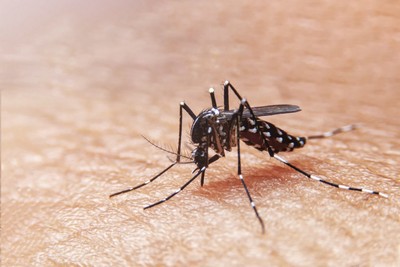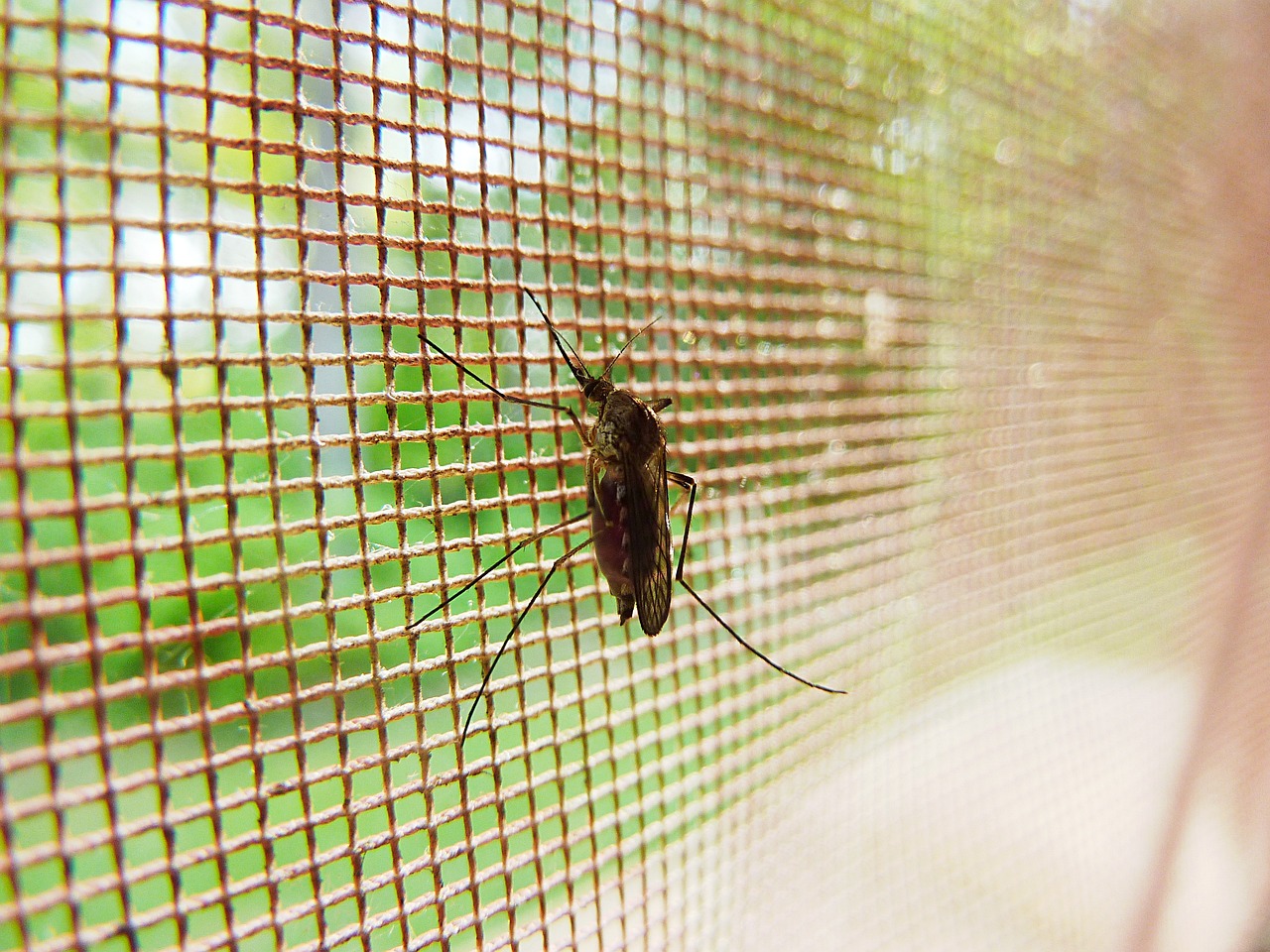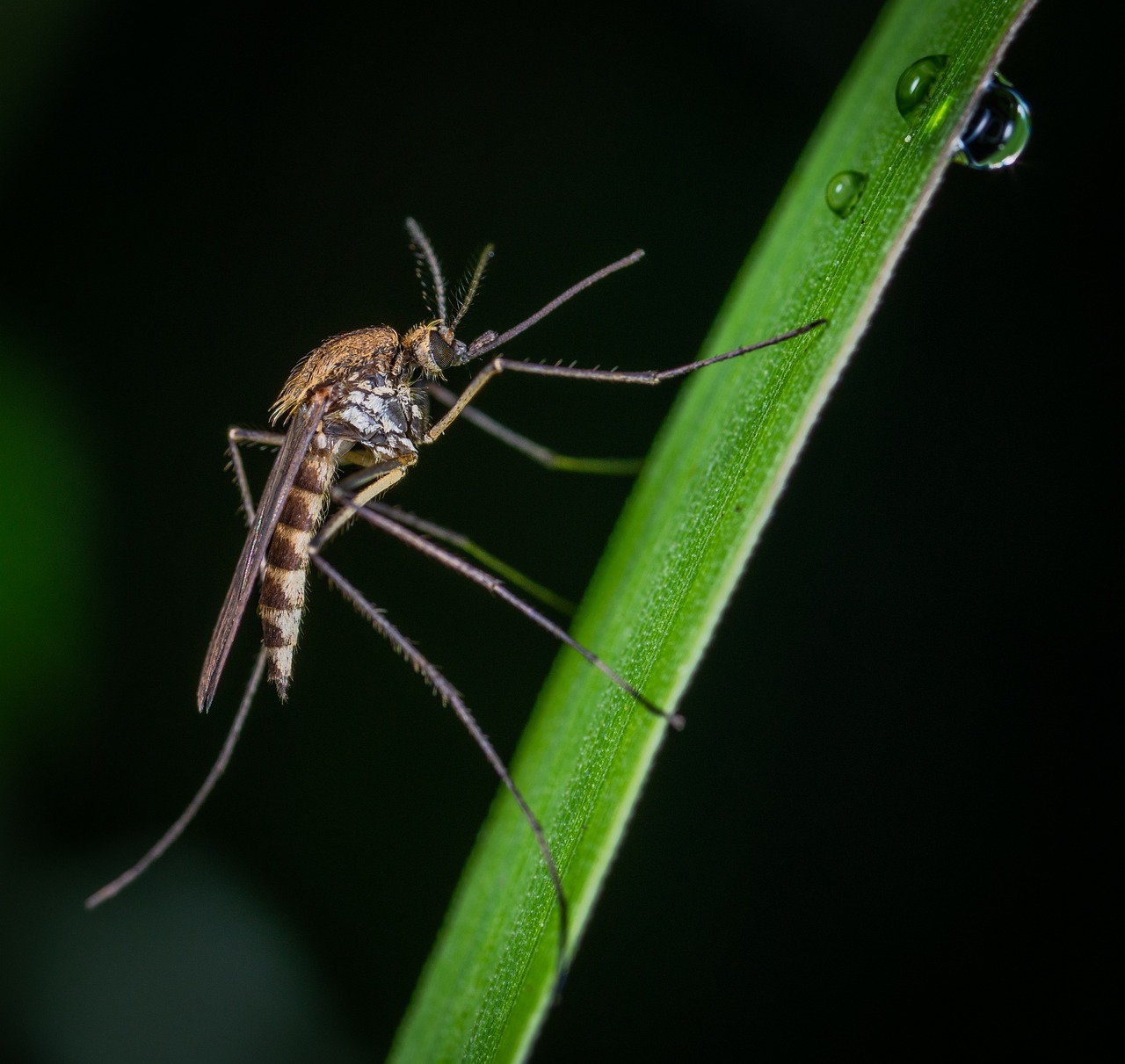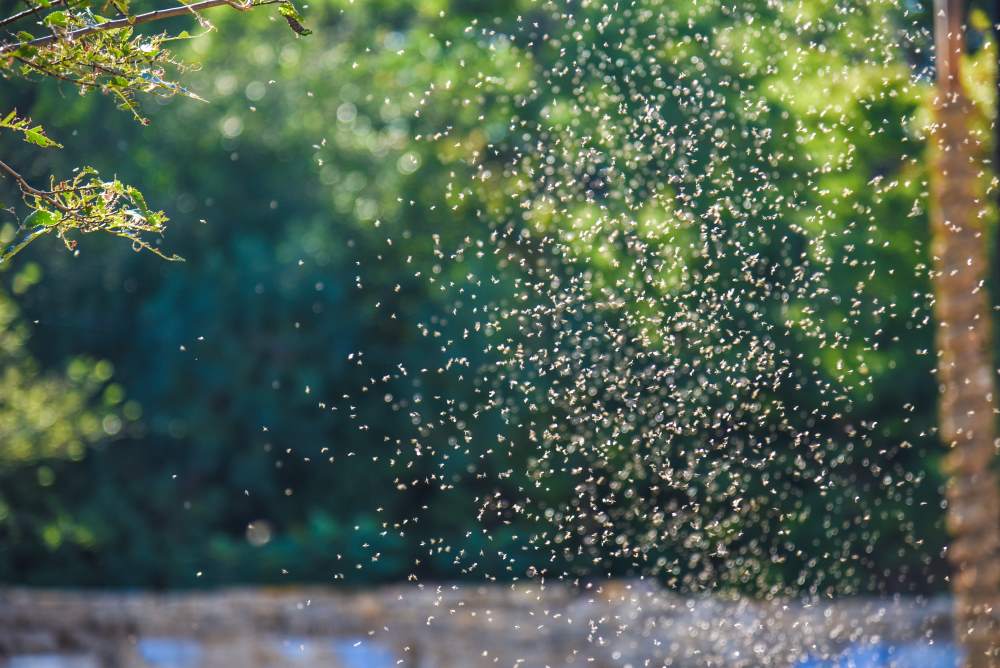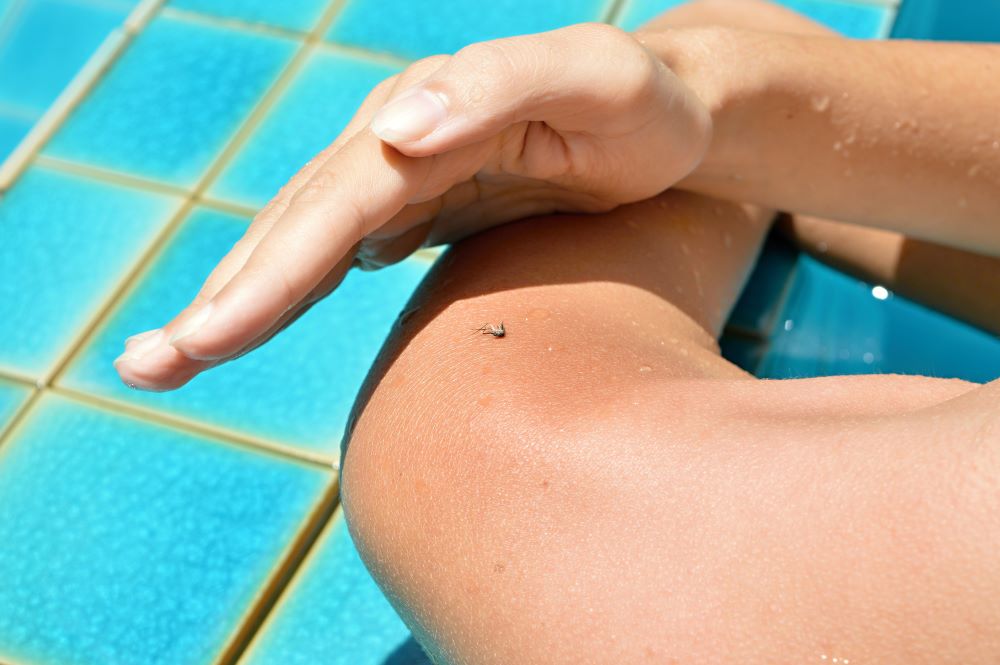
A nice, relaxing swimming pool is something that everyone wants in their yard during the hot summer months. You’ve spent days building your pool, or even spent thousands of extra dollars on a home with one already set up. Mosquitoes don’t care though; they see pools as an opportunity to lay eggs and feast on the blood of the people who swim in them. So to protect your summer fun and honor your pool with the care it deserves, you’ll have to keep an eye out for the issues that attract the mosquito menace.
If you have a serious mosquito problem in your yard, sometimes the best bet is to contact the professionals. Recon Pest Services is here to help you keep your Omaha or Lincoln home free from bugs of all kinds year round. Contact us today, and get those pesky mosquitoes out of your pool!
Where the problem starts: Mosquito larvae in your pool
Having mosquito larvae in your pool poses a significant threat to you and your family’s health. Mosquitoes are known carriers of various diseases, including Zika virus, West Nile virus, and dengue fever. While the larvae themselves may not transmit these diseases, they will eventually grow into adult mosquitoes that can. Additionally, mosquito bites can cause uncomfortable itching and irritation. It is crucial to take immediate action to eliminate mosquito larvae from your pool to prevent the spread of diseases and ensure a safe environment for your loved ones.
How to Identify Mosquito Larvae in Your Pool
Identifying mosquito larvae in your pool is relatively easy once you know what to look for. The larvae are usually small and slender, with a length of about half an inch. They have a distinct head and a segmented body covered in tiny hairs. Mosquito larvae are dark in color, ranging from black to brown. They are often found near the surface of the water, where they come up to breathe through a specialized tube called a siphon. Keep an eye out for any wriggling, worm-like creatures in your pool, especially in stagnant or still water areas. If you spot mosquito larvae, it’s time to take action to eliminate them.
Preventing Mosquito Larvae in Your Pool – Maintenance Tips
Preventing mosquito larvae from infesting your pool requires regular maintenance and a proactive approach. Here are some essential tips to keep your pool mosquito-free:
- Keep it clean: A dirty pool is an invitation for bugs of all kinds. Bugs love to make nests in standing water with lots of algae to feed off of. Remove debris like dead leaves or grass clippings that fall into your swimming sanctuary, as this junk can be food or shelter for mosquitos and other bugs.
- Maintain proper water circulation: Make sure your pool’s filtration and circulation systems are functioning correctly. Stagnant water is a breeding ground for mosquito larvae.
- No more standing water: Are there any areas in your yard with standing, still water? Get rid of it, or make sure that the water is constantly flowing with a pump to make sure bugs can’t lay their eggs in it safely. Check flower pots, buckers, bird baths, and other sources of water in your yard as well.
- Use a pool cover: One of the more obvious solutions is to cover up your pool when you aren’t using it with a full sized pool cover. This will prevent mosquitoes from getting into the water and making a home for themselves during the nighttime.
- Keep vegetation in check: Trim trees, shrubs, and plants around your pool area to minimize shade and reduce the likelihood of mosquitoes gathering.
Non-chemical solutions for killing mosquito larvae in pools
If you prefer an approach that will do less damage to your pool’s delicate chlorine and cleaning chemical balance when eliminating mosquito larvae, there are a few methods you can try:
- Bacterial larvicides: Bacillus thuringiensis israelensis (BTI) is a naturally occurring bacterium that targets mosquito larvae. It is available in tablet or granule form and can be applied to your pool water to kill the larvae.
- Brush and scrub: Use a pool brush or scrubbing tool to physically remove mosquito larvae from the sides and bottom of your pool. This method is effective for smaller infestations.
Chemical Treatments for Mosquito Larvae in Pools
If you need to pull out the big guns on mosquito larvae, you’ll need to consider chemical solutions. Just be sure to follow the instructions on the label!
- Mosquito larvicides: These products specifically target mosquito larvae and prevent them from developing into adults. They are available in liquid or granule form and should be applied according to the instructions.
- Chlorine shock treatment: Superchlorinating your pool with chlorine can kill mosquito larvae. However, be cautious when using chlorine and follow the recommended dosage to maintain a safe swimming environment.
Keep your pool in order!
One of the most important parts of keeping your pool bug free is to just stay on top of cleaning and maintenance. If you notice a problem in your pool (like the filter motor breaking, the filter is dirty, or the color of the water is off), take care of it as soon as you can! If you keep your pool in good maintenance, you’ll experience these benefits:
- Prevent algae and bacteria growth: Regular cleaning and maintaining proper chemical balance help prevent the growth of algae and harmful bacteria in your pool. These bacterias and algae make a great environment for bugs and mosquitoes to make a home, and can even make swimmers sick if exposed to certain bacteria.
- Extend pool lifespan: Proper maintenance and cleaning can help prolong the lifespan of your pool, saving you tons of money in the long run. Pools are an expensive investment, treat yours like one!
- Safety first: Keeping your pool clean and in good condition should be a top priority if you want to keep your pool a safe environment for your friends and family. Reduce the risk of accidents by making sure filters are up to date, and that your pool is well lit when swimming at night!
Additional Tips to Keep Your Pool Mosquito-Free
Still having problems with these pesky blood suckers? Here are some additional tips to help you keep your pool and yard free from mosquitoes all year round.
- Mosquito repellents for pools: Some chemical mosquito repellents are specifically designed to work in and around swimming pools. Ask your local pool supply store if they have any solutions in stock, as this is likely a common problem for other pool owners in your area.
- Put up mosquito nets:One of the best ways to keep bugs away are mosquito nets. Set up a fine-meshed net around your patio to protect your picnic area from biting mosquitoes. Although you probably can’t put up a net around your pool, keep in mind that you can use mosquito netting to protect more vulnerable areas in your yard.
- Keep the area well-lit: Mosquitoes love the dark, which you might have noticed if you’ve ever tried to enjoy a chill swim session late at night. When you’re enjoying your pool at night, use adequate lighting to scare them off.
Conclusion
Mosquito larvae in your pool can quickly become a nuisance and pose health risks to you and your family. Remember to prioritize regular pool cleaning and maintenance to keep your pool clean, safe, and mosquito-free. So, don’t wait any longer – reach out to Recon Pest Services today and ensure your home is protected from mosquito larvae and their potential threats.

